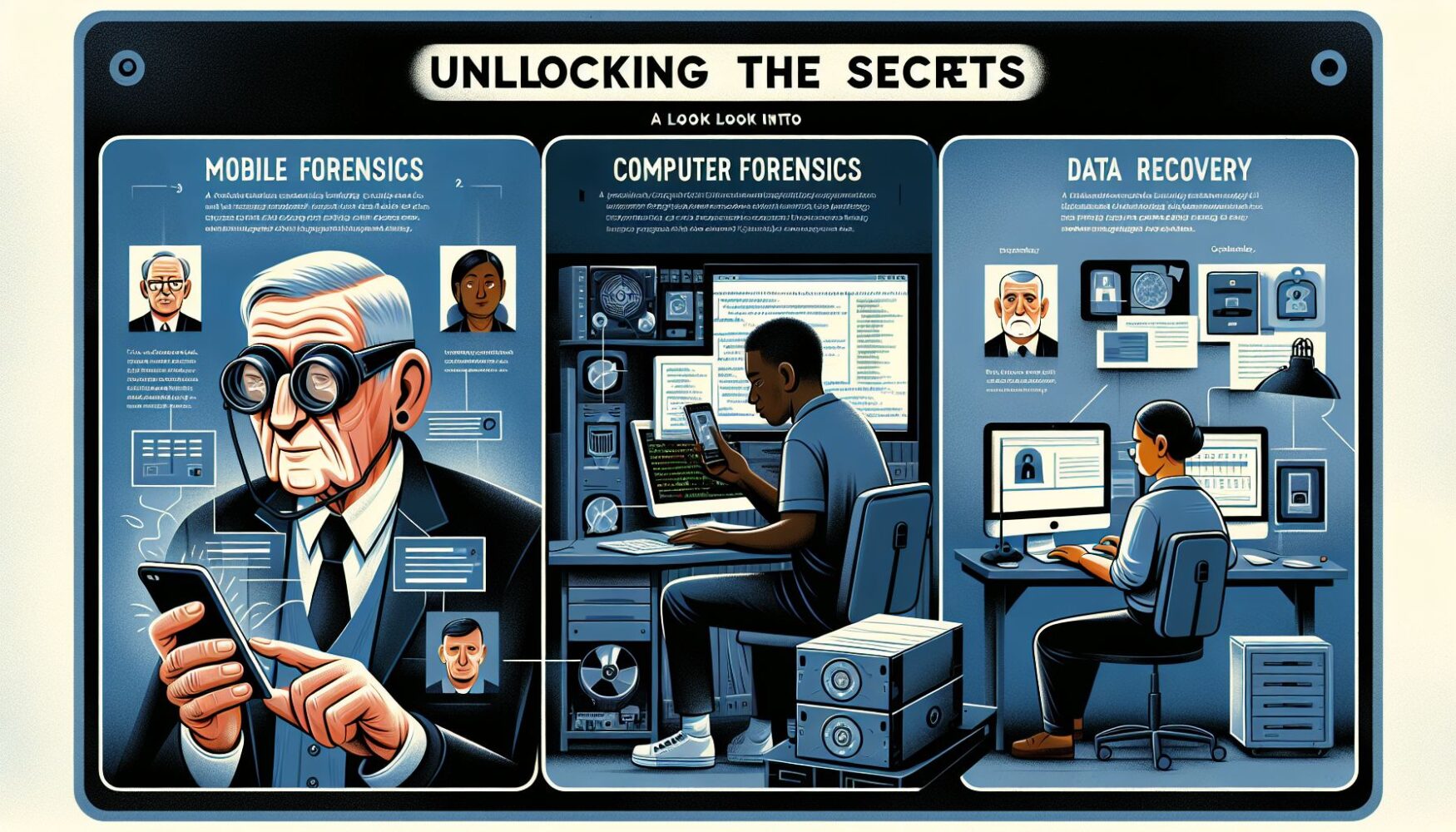Welcome to the fascinating world of digital forensics! In today’s technologically advanced society, the need for mobile forensics, computer forensics, and data recovery has never been more crucial. Whether you are a law enforcement officer investigating a crime, a corporate cybersecurity analyst protecting sensitive information, or just a regular user trying to recover lost data, understanding these concepts can be incredibly beneficial.
Mobile Forensics
Let’s start by diving into the realm of mobile forensics. With the widespread use of smartphones and other mobile devices, extracting and analyzing digital evidence from these gadgets has become a critical component of investigations. Mobile forensics involves retrieving data such as call logs, text messages, emails, photos, videos, and even location information from mobile devices. This data can be used as evidence in criminal cases, civil litigation, or internal investigations within organizations.
Forensic experts use specialized tools and techniques to extract data from mobile devices without altering the original information. They carefully follow a set of procedures to ensure the integrity and admissibility of the evidence in a court of law. Mobile forensics can be challenging due to the variety of operating systems, encryption mechanisms, and security features implemented on modern devices. However, with the right skills and tools, forensic investigators can uncover valuable insights from mobile devices to aid in their investigations.
Computer Forensics
Moving on to computer forensics, this branch of digital forensics focuses on analyzing data stored on computers and other electronic devices. Whether it’s a desktop computer, a laptop, a server, or a USB drive, forensic examiners can retrieve deleted files, internet browsing history, chat logs, and other digital artifacts that can provide valuable clues in an investigation. Computer forensics is often used in cases involving cybercrimes, fraud, intellectual property theft, and data breaches.
Forensic analysts use sophisticated software tools to acquire, preserve, and analyze digital evidence from computers. They follow a strict chain of custody to maintain the integrity of the evidence and ensure that it is admissible in court. In addition to traditional computer systems, forensic investigators also deal with emerging technologies such as cloud computing, virtual machines, and IoT devices. Keeping up with the latest trends in technology is essential for a successful career in computer forensics.
Data Recovery
Lastly, let’s touch on the topic of data recovery. Whether you accidentally delete important files, experience a hardware failure, or fall victim to a malware attack, losing data can be devastating. Data recovery specialists are skilled in recovering lost or corrupted data from various storage devices such as hard drives, solid-state drives, USB drives, and memory cards. By using specialized software and techniques, they can often retrieve seemingly lost data and restore it to a usable state.
Data recovery is a critical service for individuals and businesses alike. Losing valuable information can have serious consequences, from financial losses to legal disputes. That’s why it’s essential to work with experienced data recovery professionals who can efficiently recover your data and minimize the impact of a data loss incident. Preventative measures such as regular backups and data protection strategies are also crucial in safeguarding your information against unexpected data loss events.
Conclusion
In conclusion, mobile forensics, computer forensics, and data recovery play crucial roles in today’s digital landscape. Whether you’re a forensic investigator, a cybersecurity professional, or just an everyday user, understanding these concepts can help you navigate the complexities of digital investigations and data recovery. By staying informed about the latest trends and technologies in the field of digital forensics, you can be better prepared to handle digital challenges and protect your valuable information. So, embrace the world of mobile forensics, computer forensics, and data recovery, and unlock the potential of digital investigation and data retrieval.





